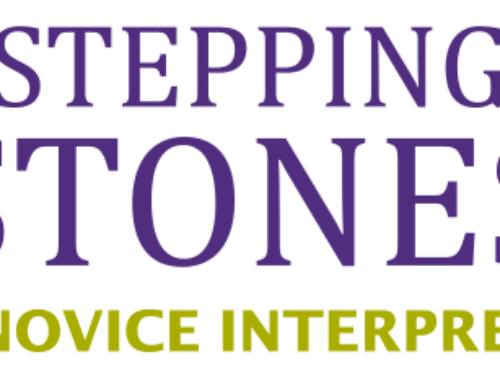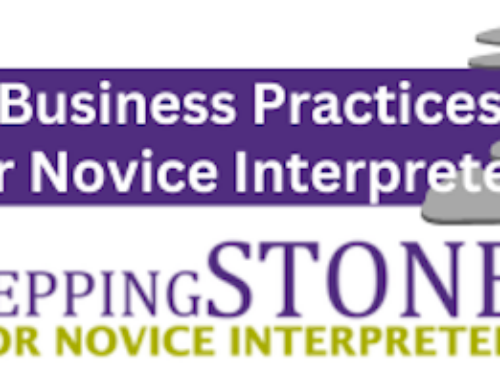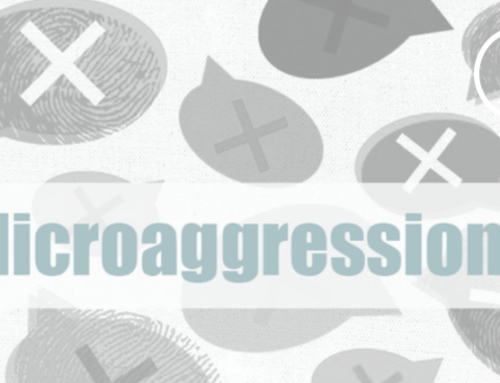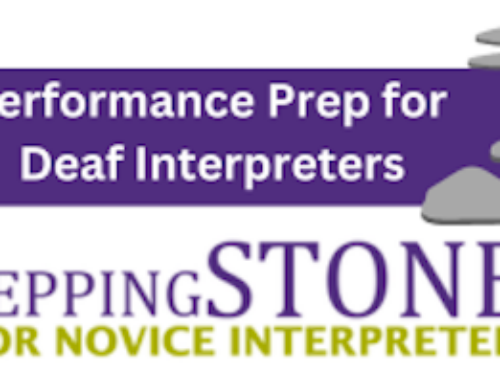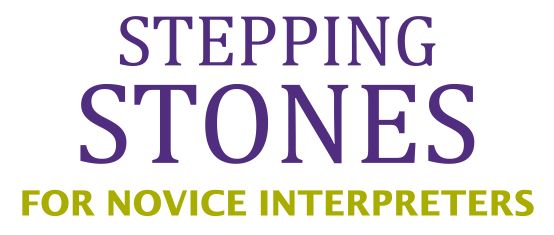
- Are you looking to elevate the level of your interpreting skills?
- Are you interested in developing your ability to assess and reflect about your work?
- Are you looking for no-cost high quality options?
Check out this free online course on building capacity for reflective self-assessment. It is the sixth offering in Stepping Stones for Novice Interpreters, a self-directed track from the CATIE Center’s Dive In project.
Reflective Self-Assessment for Novice Interpreters

Description
This course is designed to encourage thoughtful work production as well as ongoing reflection and evaluation of factors influencing interpreting decisions. Participants in this course will each begin by individually interpreting a source text. They will then examine the interpretation they created and reflect upon their work using categories adapted from the Interpreting Performance Assessment Rubric (ProjectTIEM). The Interpreting Performance Assessment Rubric supports unpacking multiple aspects of the interpretation, not just language fluency or vocabulary choices. This course takes an additional step in examining interpretation and reflection by sharing the interpretations of this same source text by a group of expert interpreters who, similarly to this course format, had opportunities to reflect upon their work. Finally, participants can apply their discoveries to a personal professional development plan, including application of the reflective practice to other interpreting samples.
Learning Objectives
Participants completing this course will:
- Identify patterns in an interpretation that indicate strength or opportunities for development as an interpreter
- Analyze decisions made before, during or after the work for effectiveness
- Synthesize findings using a specific set of categories focused on the overall interpretation including Content, Intent, Cues & Strategies, Role-Space, Ergonomics and Environment
- Create a professional development plan for use with ongoing education and mentoring
The course is designed to be completed over 6 weeks, at your own pace and takes at least 10 hours to complete. Each module will have a specific focus and include opportunities for application and reflection. The course registration will be available from April 1-30.
A Note on CEUs
Because our grant is focused on novice interpreters working toward certification, CEUs are not offered. Interpreters interested in CEUs can initiate a PINRA with an RID approved sponsor.
For a PINRA application, you need the following information:
- CEUs to request: 1.0 CEUs in Professional Studies
- Workshop Flyer, Description and Agenda: Available as Google Doc. You can download this page to include with your PINRA application.
- Documentation of Learning: This course will take at least 10 hours to complete and you will receive a certificate of completion at the end that you can share with your sponsor. Additionally, if your sponsor requires reflections on what you have learned, you can copy your reflections from the course to share with them.
- Dates of Activity: You can choose to start the activity any time before April 30. When you complete it is up to you, but there will not be any facilitation after May 15, 2024.
Registration Open April 1-30 2024.
The registration form will provide you a link to enroll in a free Canvas course. It will also ask for optional demographic information which will be helpful for the CATIE Center in evaluating the effectiveness of these resources for supporting the diversity of novice interpreters who are entering the interpreting field.
About Stepping Stones for Novice Interpreters
This course is part of a series developed by the Dive In project of the CATIE Center at St. Catherine University. Each module will have a facilitator from the CATIE Center who monitors a Support Forum. The activities are designed so that you can do them asynchronously. Though possible to do independently, we encourage you to either join as a group and work through the material together – or use the introduction forum to seek out others in the course who might work with you in the discussions. Collaborative learning can be a really important tool in professional development.

